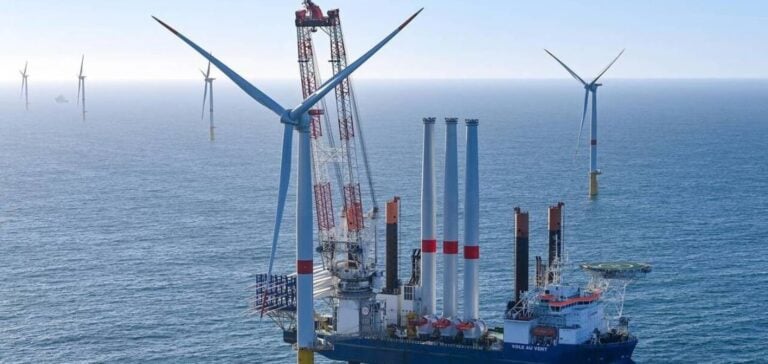EDF Renewables acquires West Sea Energy 1 from Shell Overseas Holdings Ltd, marking its entry into the South Korean offshore wind market.
The project is located in Yeonggwang County, in the southwest of the country, and has a potential capacity of 1.5 gigawatts (GW) in three areas where wind measurements have already been carried out.
This operation is part of EDF Renewables’ strategy to expand its portfolio in the Asia-Pacific region, an increasingly dynamic sector for the development of renewable energies.
South Korea aims to reach 14.3 GW of offshore wind capacity by 2030, and EDF Renewables’ acquisition of West Sea Energy 1 aligns with this vision.
The company expects to finalize the Electrical Business License (EBL) application by 2025, a crucial step in securing the project’s development.
Strategic Positioning in the Asian Offshore Wind Market
EDF Renewables’ entry into the South Korean market is not an isolated one.
It is part of a broader strategy to position itself in the Asia-Pacific region, where national energy policies favor a transition to low-carbon energy sources. The offshore wind market in this region is growing rapidly, and demand for additional capacity is intensifying. South Korea, with its energy development ambitions and favorable maritime conditions, represents a significant opportunity.
The technologies used by EDF Renewables, whether fixed or floating foundations, enable projects to be adapted to specific geographical features and local infrastructures.
Technological diversity is a major asset in meeting the specific constraints of the various Asian markets.
Regulatory challenges and local partnerships
Accessing the South Korean market involves a number of challenges, particularly on the regulatory and industrial fronts.
The procedures for obtaining the necessary permits and meeting local requirements are complex.
By gradually increasing its local presence and developing a dedicated team, EDF Renewables aims to navigate these constraints proactively.
Collaboration with South Korean companies is crucial to align the project with local expectations and industrial policies.
The Korean market, characterized by increased competition and strict regulation, requires a keen understanding of local dynamics.
EDF Renewables will need to work closely with local authorities and industrial partners to optimize its chances of success.
Development prospects and market expectations
The outlook for offshore wind power in South Korea is promising, underpinned by clear government objectives and a desire to diversify energy supply sources.
EDF Renewables is counting on its ability to fit into this dynamic framework, drawing on its global expertise and adapting its technological approaches to local realities.
The acquisition of West Sea Energy 1 could thus provide important leverage for future projects in the region.
The strategic decisions taken by global energy companies such as EDF Renewables demonstrate a desire to increase their influence in fast-growing markets, while adapting to local specificities for successful integration.






















